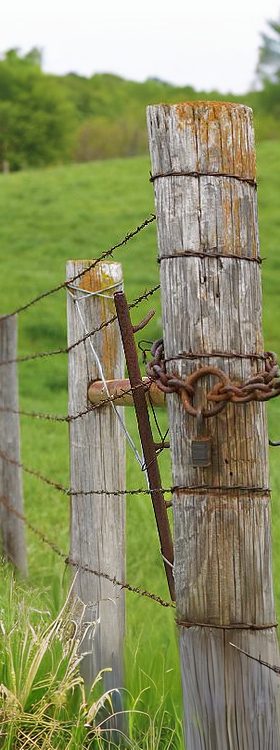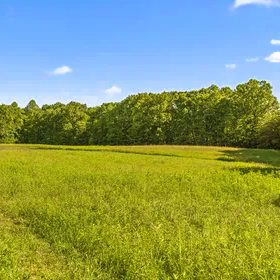
Imagine owning a slice of Tennessee’s beautiful landscape, only to find out that your piece of paradise is trapped like a sandwich in a Ziploc bag with no way out. That, my friend, is what we call landlocked property. It’s like being invited to the party but then realizing the door is locked. But don’t fret—understanding landlocked property Tennessee is the key (pun intended) to unlocking your land’s potential and ensuring you’re not stuck playing solitaire with no way to reach the road.

What Is Landlocked Property?
Definition & Common Scenarios
So, what exactly is landlocked property? Picture this: you own a parcel of land, but it’s surrounded by other properties, with no public road or driveway to get you there. It’s as if your land is wearing an invisible cloak, making it nearly impossible for anyone to reach it. This can happen in rural Tennessee, where winding roads and private land create a puzzle of access issues. Or maybe it’s an older subdivision where time and development have boxed you in like the last can of beans on the grocery shelf.
Why It Matters in Tennessee
In Tennessee, landlocked properties are as common as sweet tea on a summer day. With our state’s mix of sprawling farmlands, dense forests, and hilly terrains, it’s easy to end up with a piece of land that’s playing hard to get. And while it might seem like a minor inconvenience at first, being landlocked can turn your dream property into a logistical nightmare if you don’t know your way around the situation.
Legal Rights for Landlocked Property Owners in Tennessee
Easements & Access Rights
Here’s where things get interesting. Just because your land is surrounded doesn’t mean you’re out of luck. Easements are like the secret tunnels of the property world, granting you the right to pass through someone else’s land to get to yours. In Tennessee, these easements can be as old as the hills or as new as yesterday’s newspaper. Whether it’s a prescriptive easement (think of it as a grandfathered right from years of use) or an easement by necessity (because, frankly, you’ve got no other choice), these legal paths can be your golden ticket to freedom.
Tennessee State Laws & Regulations
Now, Tennessee isn’t the Wild West—there are laws in place to help you out. The state’s regulations around landlocked properties are designed to keep the peace between neighbors while making sure you can access your land. Whether it’s through friendly negotiations or a bit of legal wrangling, knowing Tennessee’s specific laws can make the difference between a handshake deal and a courtroom showdown.
How to Gain Access to a Landlocked Property in Tennessee
Negotiating with Neighbors
Let’s talk strategy. When your land is playing hard to get, sometimes the best move is to sweet-talk the neighbors. Negotiating an easement can be like haggling at a flea market—you want a good deal, but you also want to walk away with a smile. In Tennessee, this often means coming to an agreement that benefits both parties. Maybe you offer to share the maintenance costs of a driveway, or perhaps you promise to keep the noise down during your Sunday barbecues. Whatever the case, a little Southern charm can go a long way.
Legal Recourse if Negotiations Fail
Of course, not every neighbor is going to roll out the welcome mat. If your negotiations hit a brick wall, it might be time to bring in the big guns—the legal system. Tennessee courts have seen their fair share of landlocked disputes, and they’re equipped to help you secure an easement if you can’t get one through a handshake. Just be ready for a process that’s about as fun as watching paint dry, but hey, if it gets you access to your land, it’s worth the effort.

Challenges & Considerations for Landlocked Property Buyers
Due Diligence Before Purchasing
Before you get too excited about that picturesque Tennessee property, take a breath and do your homework. Buying landlocked property is like buying a car without a test drive—you want to know exactly what you’re getting into. Start with a title search to make sure there’s no existing easement you didn’t know about. Then, get a survey to see exactly where your land sits in relation to its neighbors. And for good measure, have a chat with a lawyer who knows the ins and outs of Tennessee land law. It might sound like a lot of work, but it’s better than finding out later that you bought yourself a landlocked headache.
Costs & Implications of Access Solutions
Securing access to your landlocked property isn’t just about waving a magic wand. There are costs involved, from legal fees to the actual construction of an access road or driveway. And let’s not forget the potential impact on your property value—access can turn a plot of land from a hard sell into a hot commodity. So, weigh the costs and benefits carefully, and make sure you’re making a sound investment.
Tips for Selling a Landlocked Property in Tennessee

How to Market a Landlocked Property
Selling a landlocked property can feel like trying to sell a car with no wheels, but it’s not impossible. The key is transparency—let potential buyers know what they’re getting into and highlight any easements that are already in place. Market the property to folks who see the potential, whether it’s a developer with a plan or someone looking for a secluded getaway.
Working with Real Estate Agents & Lawyers
And don’t go it alone. Working with a real estate agent who’s familiar with Tennessee’s quirks can make a world of difference. Pair them with a lawyer who knows the legal landscape, and you’ve got a team that can help you navigate the twists and turns of selling a landlocked property.
Case Studies of Landlocked Properties in Tennessee
Winning with Negotiation: The Smiths in Sevier County, TN
The Smiths found their dream cabin spot in Sevier County, but their excitement quickly turned to frustration when they realized their land was locked away without road access. Surrounded by other properties with no direct route to a public road, they faced a significant hurdle. Instead of letting this obstacle derail their plans, the Smiths decided to approach the neighboring landowner with a proposal.
After a few friendly conversations, they struck a deal to share the maintenance costs of a road that would run through the neighbor’s property. The arrangement was mutually beneficial—the Smiths gained access to their land, and the neighbor enjoyed a well-maintained road. This successful negotiation allowed the Smiths to build their dream cabin, proving that a little give-and-take can go a long way.
A Creative Solution: The Martins in Williamson County
In Williamson County, the Martins purchased a beautiful wooded lot, envisioning it as the perfect location for a weekend retreat. However, they soon discovered that their idyllic spot was landlocked, with no legal access to a public road. Faced with this challenge, they knew they needed to think creatively to avoid a dead-end situation.
Instead of giving up, the Martins approached a neighboring farmer with an offer to buy a narrow strip of land along the property line, just wide enough to build a driveway. The farmer, seeing the benefit of some extra cash without sacrificing much of his land, agreed to the deal. This clever solution allowed the Martins to secure access to their property, turning their vision of a weekend getaway into reality.
Developing a Compromise: The Browns in Hamilton County
The Browns purchased a secluded hillside property in Hamilton County, attracted by the privacy and potential for a peaceful retreat. However, they quickly hit a snag when they realized that access to their land was blocked by a neighboring developer’s property. With their plans in jeopardy, the Browns needed to find a way to secure an easement without causing conflict.
They proposed a compromise to the developer: in exchange for a permanent easement, they would agree to certain building restrictions on their own property that would align with the developer’s future plans. Recognizing the mutual benefits, the developer accepted the proposal. This agreement granted the Browns the access they needed while preserving the developer’s interests, allowing both parties to move forward without friction.
Legal Victory: The Johnsons in Blount County
In Blount County, the Johnsons purchased a picturesque piece of land, only to discover that their dream property was landlocked, and the neighboring landowner had no interest in granting them access. After multiple failed attempts at negotiation, the Johnsons realized they had no choice but to take legal action to secure the right-of-way they desperately needed.
The case was far from easy, but after presenting evidence that the previous owner had used a particular path for decades, the court ruled in favor of the Johnsons. They were granted a prescriptive easement based on long-term historical use, which finally allowed them to proceed with their plans. Though the legal battle was long and challenging, the Johnsons’ persistence paid off, giving them the access they needed to enjoy their property.
The Turners in Washington County: Court-Ordered Easement
The Turners were thrilled to acquire a piece of land in Washington County, imagining it as the perfect place to build their new home. Unfortunately, they soon discovered that their property was landlocked, and the surrounding landowners were unwilling to grant them an easement. With no other options, the Turners decided to take the matter to court, seeking a legal solution to their access problem.
After a challenging legal process that tested their patience, the court finally ruled in their favor, granting them an easement by necessity. This decision allowed the Turners to unlock their land and move forward with their plans, proving that even the most stubborn access issues can be overcome with determination and the right legal approach.
Conclusion to Landlocked Property Tennessee
Navigating the challenges of landlocked property in Tennessee might seem like a daunting task at first glance, but as these case studies show, there’s often a solution waiting just around the corner—whether through friendly negotiation, creative problem-solving, or, when all else fails, the steady hand of the legal system. Each story highlights a different path to overcoming the hurdles that come with owning land that lacks direct access, proving that with persistence, a clear strategy, and maybe a little bit of Southern charm, you can unlock the true potential of your property.
But it’s more than just about finding a way in. Understanding your rights, knowing when to compromise, and being prepared to fight for your land’s value are crucial steps in ensuring that your investment pays off. Whether you’re a current landowner facing access issues or a prospective buyer eyeing a seemingly perfect plot, taking the time to explore your options, consult with experts, and think outside the box can save you a lot of headaches down the road.
So, whether you’re dreaming of building a secluded cabin in the woods, planning to develop a piece of Tennessee’s picturesque countryside, or simply ensuring that your property retains its full value, don’t let a little thing like being landlocked hold you back. There’s always a way to open the door—sometimes it just takes a little creativity, a solid understanding of the law, and the willingness to push through obstacles. In the end, the effort you put in will be well worth the reward, turning what might seem like a landlocked problem into a land-rich opportunity.
Frequently Asked Questions (FAQs)

1. Can I Legally Force a Neighbor to Grant Me Access to My Landlocked Property in TN?
Yes, in some cases, you can obtain a court-ordered easement if there is no other reasonable way to access your property. This is known as an easement by necessity, and it can be granted if denying access would render your land unusable.
2. What Is a Prescriptive Easement, and How Does It Apply to Landlocked Property in Tennessee?
A prescriptive easement is a legal right to access property that can be acquired through long-term, continuous use without the owner’s permission. In Tennessee, if you or a previous owner have used a specific path to access your land for a period of 20 years or more, you may be able to claim a prescriptive easement.
3. How Much Does It Typically Cost to Secure an Easement for a Landlocked Property in Tennessee?
The cost can vary widely depending on whether the easement is negotiated or requires legal action. Legal fees, surveys, and potential construction costs for access routes can add up, often ranging from a few thousand to tens of thousands of dollars, depending on the complexity of the situation.
4. What Should I Do If I Discover My Property Is Landlocked After Purchase?
If you find out your property is landlocked after purchase, the first step is to review your deed and any related documents to check for any existing easements. If no easement is in place, consult with a lawyer who specializes in Tennessee land law to explore your options, including negotiating with neighbors or seeking a court-ordered easement.
5. Are There Any Special Considerations When Buying Landlocked Property in Tennessee?
Yes, buying landlocked property comes with unique challenges. It’s crucial to conduct thorough due diligence, including title searches, surveys, and legal consultations, to understand the access situation fully. Also, be prepared for potential legal or negotiation costs to secure access, which can impact the overall value and usability of the property.